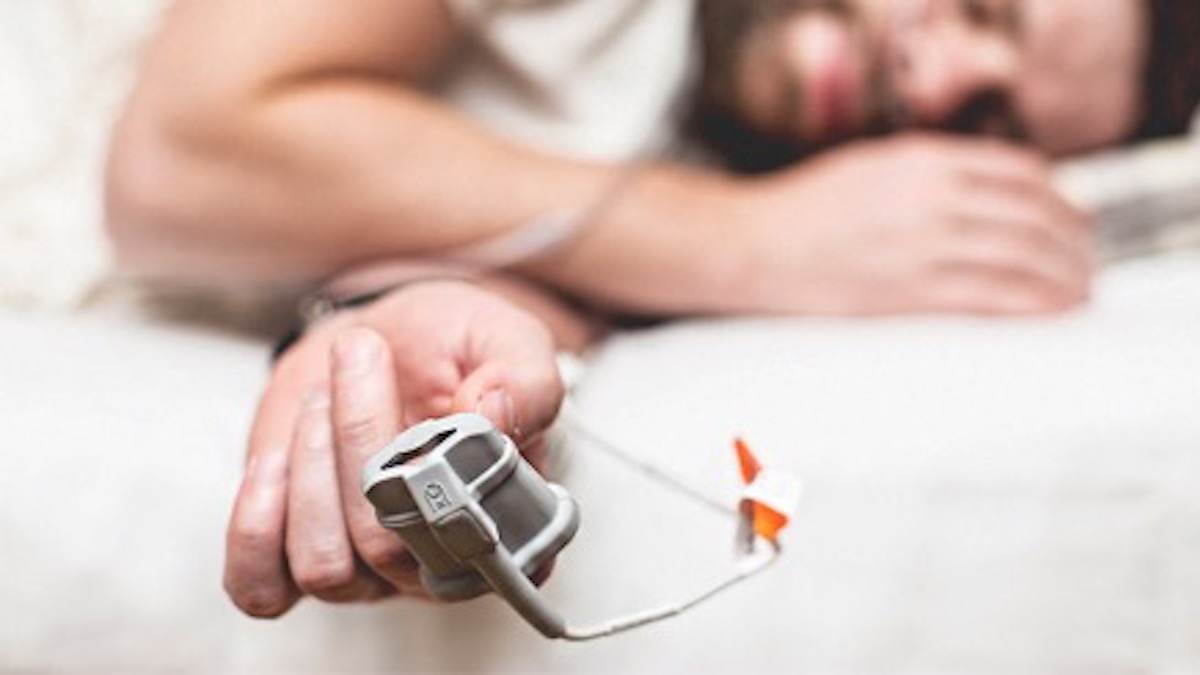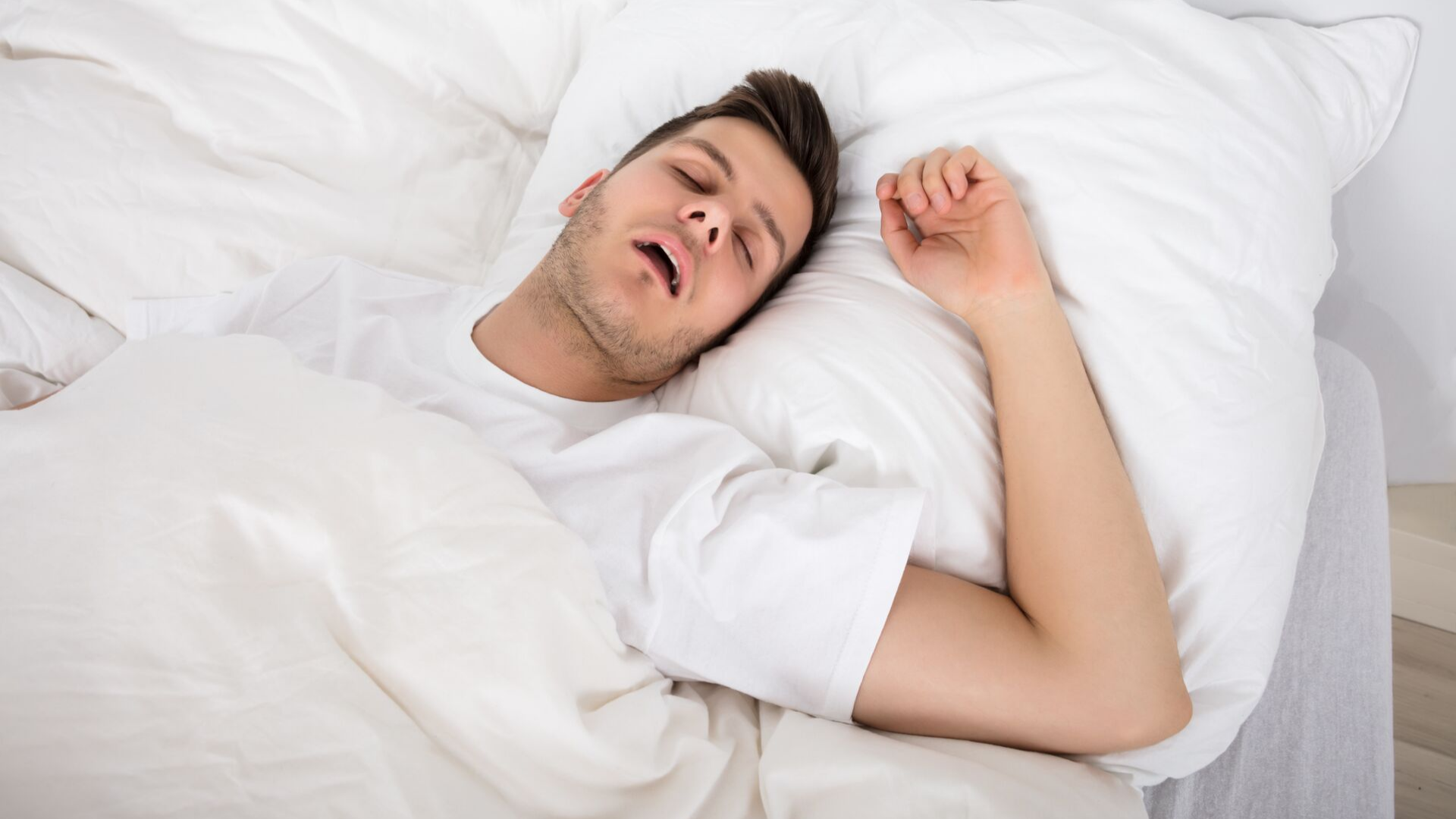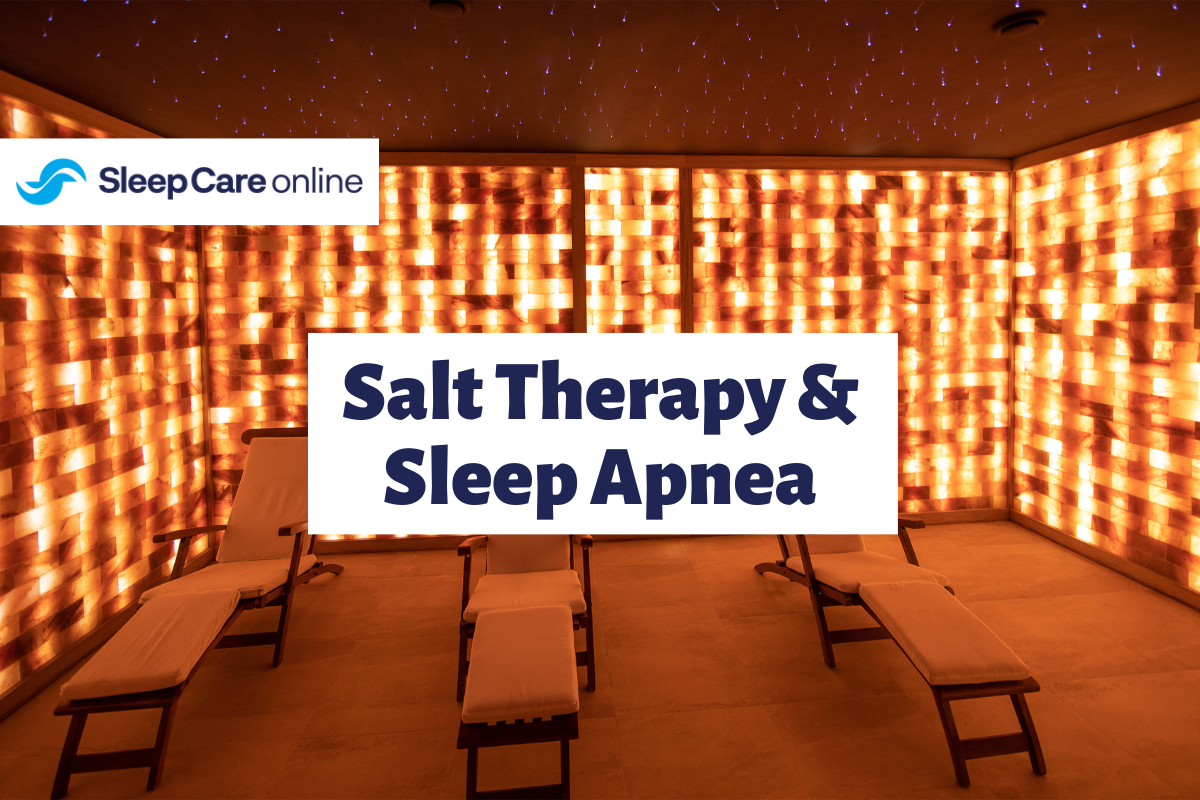
According to the CDC, individuals 65 years of age and older as well as individuals with pre-existing health conditions, such as cardiovascular disease, lung disease, and obesity, are more likely to be susceptible to COVID-19.1 While patients with sleep apnea tend to fall into the same age group and share these health risks, sleep apnea itself has not been directly linked to an increased risk of infection from COVID-19.
COVID-19 Concern for Sleep Apnea Patients
Sleep apnea is a chronic sleep disorder that affects approximately 22 million Americans, according to the American Sleep Apnea Association.2 In patients with sleep apnea, the muscles in the back of the throat relax, which causes the soft tissue to collapse and block the airway. These periods of paused breathing, called apneas, occur repeatedly throughout the night and prevent the patient from deep, restful sleep.
Undiagnosed and untreated, sleep apnea may be putting you at greater risk for a compromised immune system. A weakened immune system combined with a pre-existing health condition puts patients at risk for illness and infection, including COVID-19.
Is COVID-19 Dangerous for Sleep Apnea Patients?
While sleep apnea has not been directly linked to an increased risk of infection from COVID-19, the comorbidities associated with sleep apnea can put patients at higher risk for complications from infection.3 These comorbidities include obesity, type 2 diabetes, cardiovascular disease and lung disease.
Due to the shared health risks between COVID-19 and sleep apnea, it is important for current sleep apnea patients to take extra precaution and strictly abide by CDC guidelines for preventing COVID-19. If you are unsure whether or not you have sleep apnea, confirming a diagnosis via a home sleep apnea study is the first step.
Is there any Connection Between Sleep and the Immune System?
Research tells us that adequate sleep plays an important role in immune health.4 The CDC recommends an average of 7 hours of sleep per night for adults to prevent the onset of short- and long-term health risks.5 Left untreated, sleep apnea hinders the body’s ability to recover and strengthen itself against outside illnesses or infections.
Extra Precautions Sleep Apnea Patients Should Take to Safeguard Against Coronavirus
Along with the recommended guidelines from the CDC, such as sanitizing surfaces, hand washing and social distancing, there are a few additional precautions that sleep apnea patients specifically can follow to safeguard against COVID-19.
Continue to Use Your CPAP Machine
For current sleep apnea patients using continuous positive airway pressure (CPAP) therapy, it is important to continue to use your machine. By continuing your therapy, you are ensuring a good night of sleep, which will strengthen your immune system and may help prevent severe complications if infected.
Minimize Contact from Others to Your CPAP Machine
As an extension of social distancing, limit the amount of contact your CPAP machine has with others. Asymptomatic individuals may unintentionally contaminate your equipment, which increases your chance of infection.
Keep CPAP Equipment Clean
Diligently follow manufacturer guidelines for cleaning your hoses, CPAP masks and humidifier water chambers. Our partners at The CPAP Shop recently posted some tips for sanitizing and cleaning your CPAP equipment.
Replace Old CPAP Accessories
Old and worn out CPAP masks and hoses can trap bacteria and viruses. Follow manufacturer guidelines for replacing accessories. Be sure to replace filters as well. It may also be a good idea to keep extra supplies, such as filters and tubing, on hand.
Not Sure if You Have Sleep Apnea?
As we know, undiagnosed and untreated sleep apnea can pose serious short- and long-term health risks. If you’re not sure if you have sleep apnea, take note of the most recognizable symptoms:
- Loud snoring
- Waking up gasping for air
- Excessive daytime fatigue
- Headaches
- Irritability and mood swings
- Restless sleep
Doing the most to maintain your health, especially during a pandemic, includes taking a sleep disorder seriously. Luckily, a diagnosis no longer requires a visit to the doctor’s office or an overnight at a sleep lab.
Sleep Care online is a sleep apnea diagnostic service that provides patients with a convenient, affordable solution to their sleep management. Take a brief questionnaire prior to purchase. Then, receive a home sleep apnea test in the mail. Take the test in the comfort of your own home. Once the results are received, schedule a telehealth visit with a sleep practitioner to determine a sleep apnea diagnosis. If needed, the doctor will write a prescription for PAP therapy. If a CPAP prescription is required, you will be connected to our expert care team to help you initiate your CPAP therapy and offer suggestions for customized CPAP equipment purchases.
Start with a free risk assessment today. Still have questions? Give us a call at 866-465-4478 or email us at contact@sleepcareonline.com.
References:
- Center for Disease Control. People Who Are at Higher Risk for Severe Illness. 2020 May 14. Accessed May 2020.
- American Sleep Apnea Association. Do I have sleep apnea? Accessed June 2020.
- American Academy of Sleep Medicine. Coronavirus FAQs: CPAP tips for sleep apnea patients. 2020 Apr 3. Accessed May 2020.
- Besedovsky L, Lange T, Born J. Sleep and immune function. Pflugers Arch. 2012 Jan;463(1):121-137.
- Centers for Disease Control and Prevention. Sleep and Sleep Disorders: Data and Statistics. 2017 May 2. Accessed May 2020.




